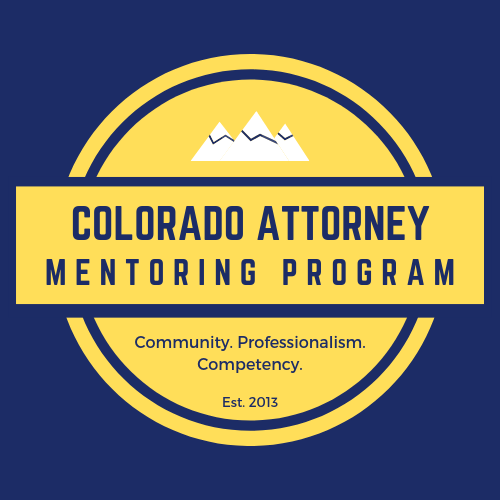The following points are provided to facilitate a discussion about different career paths for lawyers, the environments in different types of practice settings, and the resources for exploring career options that fit with the lawyer’s definition of balancer and wellness.
- Discuss the different types of law practice. For example, government or public office, private practice, large firm vs. small firm vs. solo practice, corporate, environmental, the judiciary, non-traditional legal positions, legal aid.
- Share with the new lawyer your experiences and the environments in the different practice settings in which you have worked. Invite another experienced lawyer to discuss with you and the new lawyer his or her experiences in different practice settings.
- If the mentor specializes in an area of practice, share with the new lawyer how you acquired the expertise in that area. Why did you choose to practice in that concentration? Discuss how to secure a position in your practice concentration.
- Describe to the new lawyer your typical day with respect to things such as court appearances, trial work, research and writing, client contact, discovery, mediation/dispute resolution, hours/vacation/benefits/quality of life, and similar topics.
- Share with the new lawyer what you enjoy most and least about your practice area. What or who was most instrumental in developing your practice expertise? What has been your greatest achievement?
- If the new lawyer is not in the type of practice s/he would like to be in long-term, the mentor should try to introduce the new lawyer to lawyers in the field s/he would like to explore.
- Discuss networking opportunities that would coincide with the new lawyer’s objectives.
- Share with the new lawyer tips for succeeding in the practice of law, especially in the practice setting in which the new lawyer works.
- Encourage self-reflection by the mentee. What is their personality and preferred work styles? Certain practice areas are a better “fit” for certain personality types, such as more introspective and academic personalities may find a better “fit” in a tax, antitrust or intellectual property practice. Does the mentee prefer predictability in his or her work life, or is unpredictability exciting at work? Does the mentee plan to one day seek part-time work? Thinking in a reflective manner about these types of issue can help a new lawyer find the right professional “fit.”
- Suggest a personality assessment tool, which can be helpful in identifying personality traits that can in turn help a mentee find a great professional “fit.”
Resources:
ABA-CLE Career Counsel,http://www2.americanbar.org/careercenter/Pages/careercenter.aspx.
NALP Career Paths,http://www.nalp.org/careerpaths_careerservadmin#cargen.
DISC Profile,http://www.discprofile.com/whatisdisc.htm.
Colorado Attorney Mentoring Program (CAMP) Mentoring Resource Center,https://coloradomentoring.org/mentoring-resources/mentoring-literature.
Colorado Lawyer Assistance Program (COLAP) Resources,http://www.coloradolap.org.
